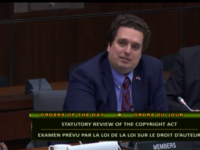Four years ago, Edward Snowden shocked the world with a series of surveillance disclosures that forced many to rethink basic assumptions about the privacy of online activities in light of NSA actions. In the years that have followed, we have learned much more about the role of other countries – including Canada – in similar activities (often in partnership with the NSA). The legality and oversight over these cyber-related programs fell into a murky area, with legal challenges over metadata programs, court decisions that questioned whether Canadian agencies were offside the law, the hurriedly drafted Bill C-51 that sparked widespread criticism, and concern over the oversight and review process that many viewed as inadequate.
Yesterday, the Liberal government unveiled Bill C-59, the first genuine attempt to overhaul Canadian surveillance and security law in decades. The bill is large and complicated, requiring months of study to fully assess its implications (reactions from Forcese/Roach, BCCLA, CBC, Wark, Amnesty). At first glance, however, it addresses some of the core criticisms of the Conservatives’ Bill C-51 and a legal framework that had struggled to keep pace with emerging technologies. Leading the way is an oversight super-structure that replaces the previous silo approach that often left commissioners with inadequate resources and legal powers. The government has promised to spend millions of dollars to give the new oversight structure the resources it needs alongside legal powers that grant better and more effective review of Canadian activities.









